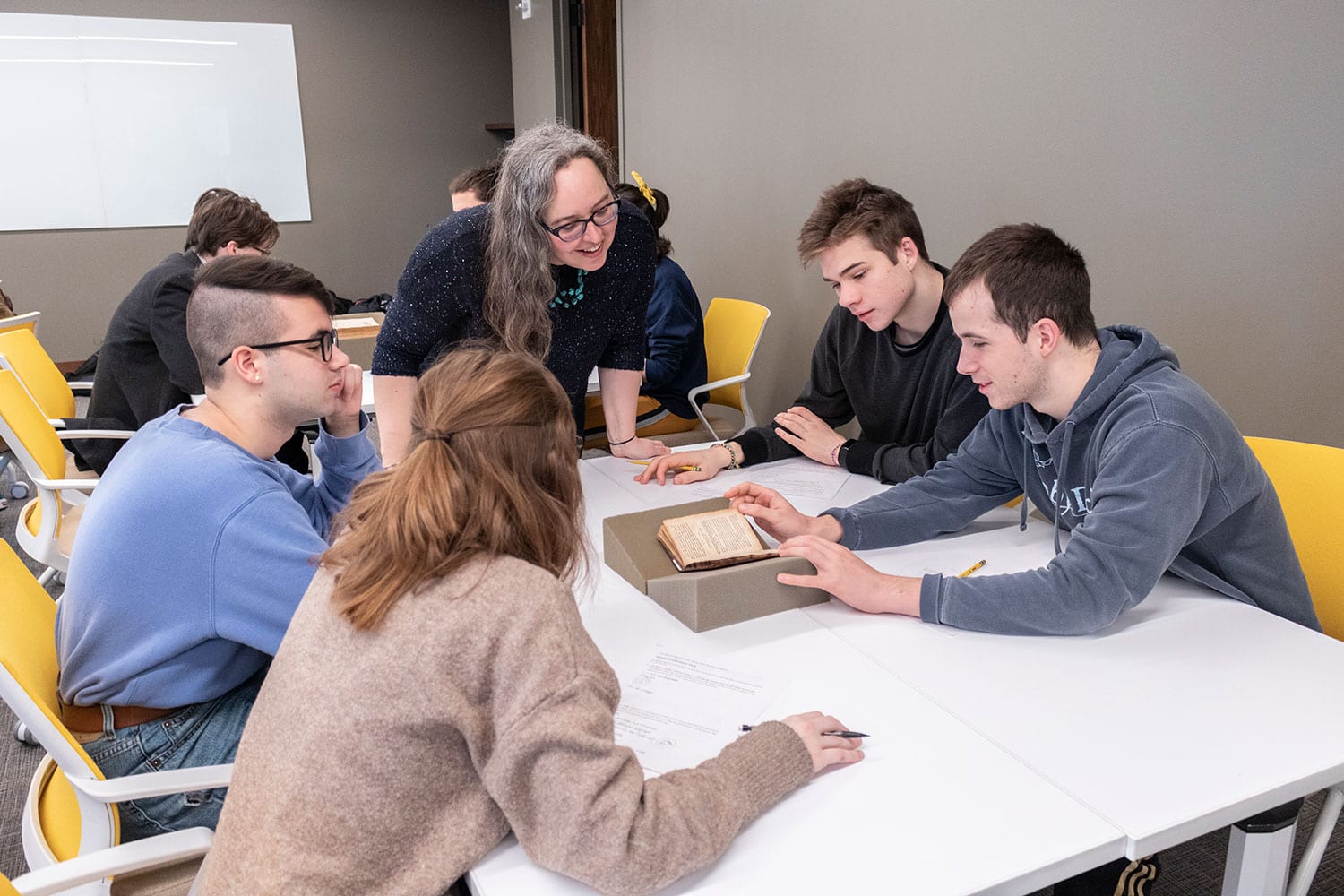Course Title: “Débat, Discussion, Dialogue”
Taught By: Assistant Professor of French and Francophone Studies Kathryne Corbin
Says Corbin:
In this course, we explore debate as a cultural medium and consider what it looks like in France as compared to the United States and other countries known to our class. Students build their oral and analytical skills by engaging in discussion of current events in the Francophone world. Topics of discussion may include linguistic integration, colonial heritage, use of social media and free speech, the role of satire and comedy, gender roles, political referendums, social programs, globalization, ethics in technology and science, and questions of philosophical nature.
Students in this course are encouraged to analyze documents and extract important material, think critically, act respectfully, and speak empathetically. They enrich their points of view in discovering different ideas… [and learn to] develop a logically strong and well-structured argument and work effectively in a team—all while building speaking, listening, and reading skills in the French language.
At a minimum, I hope that students in this course take away a better understanding of some of the current topics in the Francophone world and stronger oral debate skills. More importantly, I hope that they are able to reflect upon our discussions in order to gain a deeper understanding of other cultures, traditions, identities, ideas, and beliefs. I think that intercultural learners gain new perspectives in their own cultures, too, and can thus be empathetic and engaged thinkers as they become global citizens.
The art of conversation and debate has a long history in French culture. President Emmanuel Macron’s launch of the Grand Débat National in 2019 reinforces the French embrace of open discussion on topics ranging from the philosophical to the political. For the French, to engage in constructive public debate is often divisive, yet is a way for citizens to work together to negotiate solutions. Debate and conversation in more intimate situations strengthens relationships and fosters respect among colleagues, acquaintances, friends, and strangers.
Whereas our department offers a course on contemporary culture, history, civilization, and society, there [was] not really a follow-up course that allowed students to tackle current events and areas of contemporary interest. The principal materials of the course come from newspapers, television, radio, films—some that I have pre-selected and others that students choose for the class to study together. This course fills that gap in our curriculum and at the same time allows students to fine tune listening and speaking skills, as there are no written papers or written exams in the course—all assignments are oral presentations and oral exams, which is also unique in our department.
Learn more about other courses offered by the Department of French and Francophone Studies.

